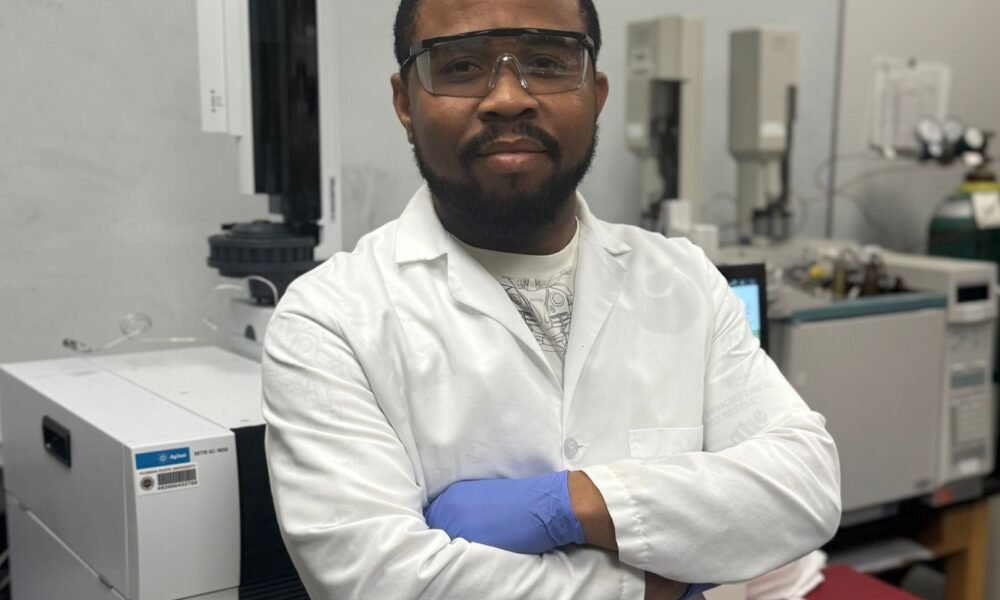News
Adopt integrated approach to fight illegal mining …Water treatment expert to gov’t

A Sustainable Water Treatment Expert at Florida State University’s Environmental Engineering Laboratory in the USA, Dr Charles Amanze has underscored the need for Ghana to adopt an integrated approach to fight the effect of illegal mining on the country’s water bodies.
The approach, according to him, “synergises novel bioflocculants, modified biochar and specialised bacterial strains to combat the nations deteriorating water quality in areas ravaged by illegal mining activities.”
Dr Amanze said this in an interview with the Ghanaian Times in Accra on Monday.
According to him, his outfit is introducing a powerful combination of complementary technologies that work synergistically to address complex water pollution challenges.
He stated that the strategy was critically pertinent for Ghana, where conventional water treatment facilities were increasingly overwhelmed by diverse contamination profiles.
Dr Amanze said the rampant illegal mining also known as “galamsey has introduced a myriad of heavy metals and organic pollutants into the country’s waterways, which requires a sophisticated and sustainable treatment solutions.
He said a recent comprehensive study by the TAMA Foundation Universal a registered non-profit organisation in Ghana, in collaboration with Ghana’s Water Research Institute of the Council for Scientific and Industrial Research (CSIR), revealed alarming concentrations of heavy metals in the White Volta river, Northern Ghana’s largest water body.
According to the study these contamination levels surpass safe consumption thresholds, posing severe health risks to local communities, particularly vulnerable groups such as infants, the elderly, and individuals with compromised immune systems who depend on the river for drinking water and domestic needs.
He therefore urged the Mahama-led government to prioritise key research into sustainable water treatment solutions to address the nation’s escalating drinking water crisis.
In a study conducted by Dr. Amanze, it proved that a novel polysaccharide-based bioflocculant derived from Bacillus subtilis ZHX3 achieved impressive removal rates of 90.4 per cent for lead, 78.2 per cent for zinc, and 86.3 per cent for copper in mineral processing wastewater.
Further advancing his research, Dr. Amanze and his team utilised a modified dehydrated biochar fabricated from banana peels, attaining maximum removal efficiencies of 98.7 per cent for arsenic and 90.3 per cent for lead from contaminated wastewater.
“Ghana is rich in banana peels and other agricultural residues like cocoa pods which can be modified to remove some of the most persistent and difficult-to-treat pollutants like Arsenic and lead” Dr Amanze said.
He said “by extracting bioflocculants from microbes and immobilising them on biochar, we can harness the complementary strengths of both materials, crafting a highly efficient and sustainable solution for pollution management.”
He mentioned that the advantages of these technologies were particularly suited to Ghana’s unique environmental conditions saying, the bioflocculant excels in treating multiple pollutants simultaneously, surpassing the performance of traditional chemical treatments.
While acknowledging potential challenges such as initial investment costs and the necessity for specialised technical expertise, Dr. Amanze remains optimisticsaying “the science is proven, the technology is viable, and the need is undeniable. It all boils down to a collective commitment to prioritise public health and safeguard our rivers and groundwater from further degradation.”
Dr Amanze said as Ghana stands at a pivotal moment in its quest to secure clean and safe water for its populace, the widespread adoption of bioflocculant-biochar treatment systems could signify a transformative leap forward.
He was of the view that the innovative approach has the potential to rehabilitate polluted waterways, thereby enhancing public health and fostering economic growth.
By Jemima Esinam Kuatsinu